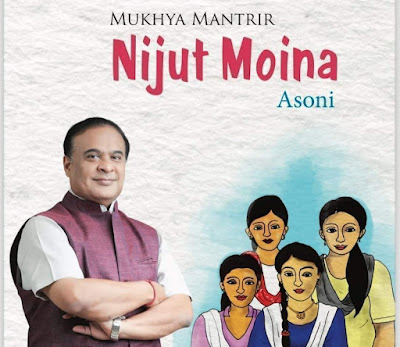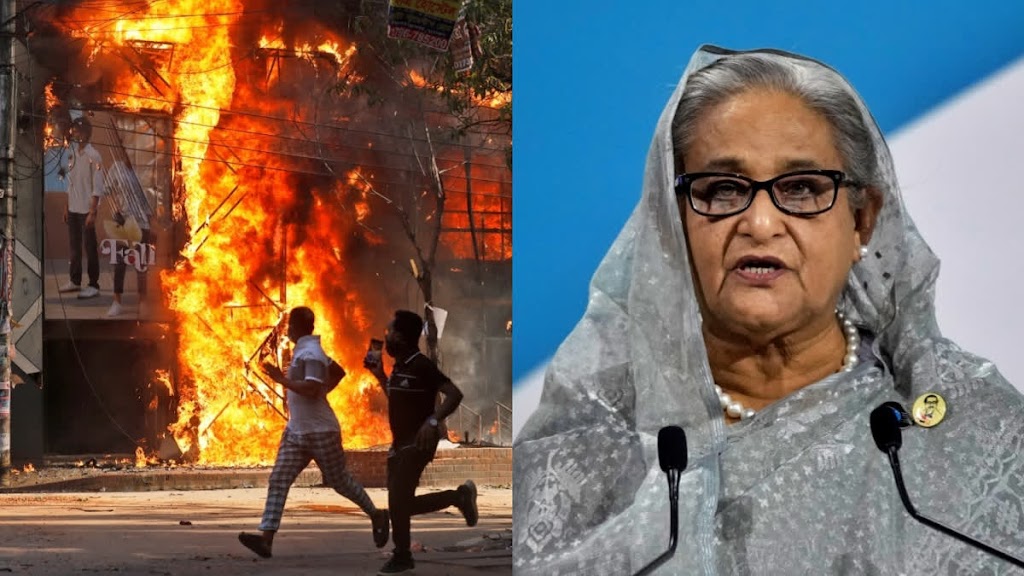ISRO Chairman List – List of ISRO Chairman – Find Details of Their Term & Tenure for APSC
Hello, aspirants are you preparing for UPSC/APSC or any other Govt Exams 2022? If yes, then you must be aware of the most important India GK Quiz for APSC Prelims & Mains for the upcoming exam preparation from science & technology. Therefore every aspirants need to know the Full List of Chairman of the Indian Space Research Organisation for APSC & Competitive Exams and other all India & state level govt exams. In this regard “World_Polity” decides to provide you the most important List of Chairman of the Indian Space Research Organisation for Upcoming Competitive Exams. Infact the Facts about ISRO Chairmen & their Educational Qualification is one among the foremost relevant and important parts of the Exams like UPSC/State PSC/SSC and lots of other Competitive Exams. Therefore read carefully entire detail of the List of ISRO Chairman – Find Details of Their Term & Tenure : their Educational Qualification for the different kind of competitive exams.
ISRO Chairman List for APSC
List of ISRO Chairman – Find Details of Their Term & Tenure
In this article we have provided you most important List of ISRO Chairman – Find Details of Their Term & Tenure. So, read these most important ISRO Chairmen lists for the upcoming UPSC – APSC Prelims & Mains exam as well as other govt exams.
Join our telegram channel – CLICK HERE
Facts about ISRO Chairmen & their Educational Qualification
In order to succeed in the prestigious competitive examination, it is important that the aspirant has access to the latest updated Facts about ISRO Chairmen & their Educational Qualification. Specially the toppers of UPSC/APSC recommend that aspirant start their preparation with the latest India GK topic from science & technology such as Facts about ISRO Chairmen & their Educational Qualification for the upcoming exams.
Complete list of ISRO Chairpersons for APSC
If you are preparing for any Government Exam you can expect one or two questions from the Indian Space Research Organisation, ISRO. It is an important topic for UPSC Prelims. Every year aspirants can find questions based on Indian Space Research Organisation in UPSC CSE Prelims. The good thing about these types of questions is that these are ‘either you know or you don’t’ type questions. If you mark it, it is highly probable that you will mark it right. We highly recommend you to go through this list ISRO Chairpersons, to have a good grasp on this topic.
Indian Space Research Organisation, ISRO
Indian Space Research Organisation (ISRO), Indian space agency, founded in 1969 to develop an independent Indian space program. Its headquarters are in Bangalore (Bengaluru). ISRO’s chief executive is a chairman, who is also chairman of the Indian government’s Space Commission and the secretary of the Department of Space.
The Indian National Committee for Space Research (INCOSPAR) was established by Jawaharlal Nehru under the Department of Atomic Energy (DAE) in 1962, on the urging of scientist Vikram Sarabhai recognising the need in space research. INCOSPAR grew and became ISRO in 1969, within DAE. In 1972, the Government of India had set up a Space Commission and the Department of Space (DOS), bringing ISRO under the DOS. The establishment of ISRO thus institutionalised space research activities in India. It since then has been managed by the DOS, which governs various other institutions in India in domain of astronomy and space technology.
ISRO built India’s first satellite, Aryabhata, which was launched by the Soviet Union on 19 April 1975.
ISRO has the world’s largest constellation of remote-sensing satellites and operates the two satellite navigation systems GAGAN and NAVIC. It has sent two missions to the Moon and one to Mars.
• Must visit : List of First in India for APSC
• Must visit : List of Satellites Launched by ISRO
ISRO is the national space agency of India for the purpose of all space-based applications like reconnaissance & communications and doing research. It undertakes the design and development of space rockets, satellites, explores upper atmosphere and deep space exploration missions. ISRO also has incubated its technologies in India’s private space sector boosting its growth. The Indian space programme was founded and pushed ahead by the vision of Vikram Sarabhai, considered the father of the Indian space programme.
Chairman of the Indian Space Research Organisation
Well Here is the complete list of the Chairman of the Indian Space Research Organisation (ISRO), their term & tenure from 1963 to till today –
| ISRO Chairman | Tenure | Lengh of Term |
| 1. Vikram Sarabhai | From 1963 to 1972 | 9 years |
| 2. M. G. K. Menon | From Jan. 1972 to Sept. 1972 | 9 months |
| 3. Satish Dhawan | From 1972 to 1984 | 12 years |
| 4. Prof. U R Rao | From 1984 to 1994 | 10 years |
| 5. K. Kasturirangan | From 1994 to 2003 | 9 years |
| 6. G. Madhavan Nair | From 2003 to 2009 | 6 years |
| 7. K. Radhakrishnan | From 2009 to 2014 | 5 years |
| 8. Shailesh Nayak | From 1 Jan. 2015 to 12 Jan. 2015 | 12 days |
| 9. A. S. Kiran Kumar | From 2015 to 2018 | 3 years |
| 10. K. Sivan | From Jan 2018 Till date | incumbent |
So this is the complete full list of ISRO Chairman, their term & tenure.
• Must Read : Biography of Missile Man Dr APJ Abdul Kalam
• Must Read : GK on Indian Space Programme
Facts about ISRO Chairmen & their Educational Qualification
Here we have provided you the the list of ISRO chairmen and their educational qualifications :
1. Dr. Vikram Sarabhai (1963 to 1972)
Dr. Vikram Sarabhai is considered the Father of the Indian space program. Vikram Sarabhai established these institutions:
I. Physical Research Laboratory (PRL), Ahmedabad.
II. Indian Institute of Management (IIM), Ahmedabad
III. Vikram Sarabhai Space Centre, Thiruvananthapuram
IV. Faster Breeder Test Reactor (FBTR), Kalpakkam
Vikram Sarabhai, internationally regarded as the Father of the Indian Space Program was a physicist and an astronomer. He was the founder of the Indian Space Research Organization (ISRO). He initiated space research and helped develop nuclear power in India. He was honoured with Padma Bhushan (1966) and Padma Vibhushan in 1972 (posthumously).
Vikram Sarabhai attended Gujarat College in Ahmedabad but moved to Cambridge University in 1940 to study natural sciences. He started his Ph.D. at Cambridge University in 1945 and wrote a thesis on “Cosmic Ray Investigations in Tropical Latitudes,” in 1947.
2. Prof. M. G. K. Menon (Jan-Sep 1972 )
I. He was known for his work on cosmic rays and particle physics, particularly on the high-energy inter-actions of elementary particles.
Mambillikalathil Govind Kumar Menon was the successor of ISRO’s founder Vikram Sarabhai. He became the chairman of ISRO in January 1972. He studied at Jaswant College, Jodhpur, and the Royal Institute of Science, Bombay (now called The Institute of Science, Mumbai). He later moved to the University of Bristol for his Ph.D. in elementary particle physics under the guidance of Nobel Laureate Cecil F. Powell in 1953.
He has been awarded several prestigious awards like Shanti Swarup Bhatnagar Prize for Science and Technology (1960), Padma Bhushan (1968), FRS (1970), Padma Vibhushan (1985), and Abdus Salam Medal (1996).
3. Prof. Satish Dhawan (1972-1984)
I. He succeeded Vikram Sarabhai, the founder of the Indian space programme, as Chairman of the Indian Space Research Organisation (ISRO) in 1972.
II. His efforts led to operational systems like INSAT and PSLV in India.
Satish Dhawan was a mathematician and aerospace engineer. He succeeded M. G. K. Menon to be the third chairman of ISRO. He was the longest-serving chairman of ISRO. He studied at the University of the Punjab in Lahore, British India (now in Pakistan) and completed a Bachelor of Science in physics and mathematics, a bachelor’s degree in Mechanical Engineering, and a Master of Arts in English literature from there.
Later, he completed a Master of Science degree in aerospace engineering from the University of Minnesota, Minneapolis, and an aeronautical engineering degree from the California Institute of Technology. He also did a double Ph.D. in mathematics and aerospace engineering. He was awarded Padma Bhushan in 1971, and Padma Vibhushan in 1981.
4. Prof. Udupi Ramachandra Rao (1984-1994)
I. Dr. Rao undertook the responsibility for the establishment of satellite technology in India in 1972.
II. He was in the lead role in designing the first Indian satellite ‘Aryabhata’ in 1975.
Udupi Ramachandra Rao was a space scientist. He is known as “The Satellite Man of India” and pioneered India’s first satellite launch Aryabhata in 1975. He became the fourth chairman of ISRO in 1884. He is the first Indian to be inducted at the Satellite Hall of Fame, Washington, and in the International Astronautics Federation (IAF).
He completed his B.Sc. from Government Arts and Science College, Anantpur, M.Sc. from Banaras Hindu University, and Ph.D. at Physical Research Laboratory, Ahmedabad under the guidance of Vikram Sarabhai, the founder of ISRO. He was awarded Padma Bhushan in 1976, and Padma Vibhushan in 2017.
5. Dr. Krishnaswamy Kasturirangan (1994-2003)
I. Under his leadership, as Chairman, ISRO, the space programme has witnessed several major milestones in the name of PSLV and GSLV.
II. He was also the Project Director for India’s first two experimental earth observation satellites, BHASKARA-I & II.
Krishnaswamy Kasturirangan was the fifth chairman of ISRO. He is a space scientist and has been awarded the three major civilian awards from the Government of India: the Padma Shri (1982), Padma Bhushan (1992), and Padma Vibhushan (2000).
K. Kasturirangan graduated in Science with Honours from Ramnarain Ruia College, Mumbai, and obtained his Master of Science degree in Physics, from the University of Mumbai. He received his Doctorate Degree in Experimental High Energy Astronomy in 1971, working at the Physical Research Laboratory, Ahmedabad.
6. Shri G.Madhavan Nair (2003-2009)
I. Chandrayaan-1 was India’s first lunar probe. It was launched under the chairmanship of Shri G.Madhavan Nair.
II. During his tenure of six years as Chairman, ISRO/Secretary, 25 successful missions were accomplished by ISRO.
G. Madhavan Nair succeeded K. Kasturirangan to become the sixth chairman of ISRO. He did his B.Sc. in Engineering (1966) from the College of Engineering, Trivandrum with a specialization in Electronics & Communication Engineering. After completing his graduation, he attended a training program at the Bhabha Atomic Research Center (BARC) Training School, Mumbai.
G. Madhavan Nair was awarded Padma Bhushan in 1998, and Padma Vibhushan in 2009 by the Government of India.
7. Dr. K. Radhakrishnan (2009-2014)
India’s first interplanetary mission Mangalyaan was launched under the chairmanship of Mr.K. Radhakrishnan.
Koppillil Radhakrishnan headed the Indian Space Research Organisation (ISRO) between November 2009 and December 2014 as Chairman of Space Commission, Secretary of the Department of Space, and Chairman of ISRO. He was the seventh chairman of ISRO.
He has a degree in Electrical Engineering from Kerala University. He studied management at the Indian Institute of Management (IIM) Bangalore. He obtained his doctorate from the Indian Institute of Technology Kharagpur, He wrote his thesis on ‘Some Strategies for the Management of Indian Earth Observation System’. He received the Padma Bhushan Award in 2014, for his contribution to Science and Engineering, especially in the field of Space Science and Technology.
8. Shri A S Kiran Kumar (2015 to 2018)
I. He has done a commendable job in the launch of Chandrayaan-1 and Mars Orbiter Mission of India.
II. Indian National Regional Navigation System (IRNSS) and GAGAN have been developed under his supervision.
A.S. Kiran Kumar served as the chairman of ISRO from January 2015 to January 2018. He is credited with the development of key scientific instruments aboard the Chandrayaan-1 and Mangalyaan space crafts.
He completed his graduation in Physics (Honours), and MSc in Electronics from the National College of Bangalore University. He then did his MTech in Physical Engineering from the Indian Institute of Science, Bangalore. He was awarded Padma Shri in 2014. He also received France’s highest civilian award – Chevalier de l’Ordre national de la Lgion d’Honneur – for his contribution to India-France space cooperation in 2019.
9. Dr. K. Sivan (2018 to 2022)
I. He has significantly contributed towards end-to-end mission planning, design, integration and analysis.
II. His tenure has been marked with the launch of Chandrayaan-2 and the acceleration of India’s manned space program.
K. Sivan is currently serving an extended tenure as the Chairman of ISRO. He is completing his tenure on 14th January 2022. Under his chairmanship, ISRO launched Chandrayaan 2, the second mission to the moon on 22 July 2019.
Sivan is the son of a mango farmer and is the first graduate from his family. He has a bachelor’s degree in engineering from the Madras Institute of Technology, and a master’s degree in aerospace engineering from the Indian Institute of Science, Bangalore. He earned a doctoral degree in aerospace engineering from the Indian Institute of Technology, Bombay in 2006. K. Sivan will be succeeded by S. Somanath as the Chairman of ISRO.
10. S Somanath (appointed in Jan 2022)
S Somanath has been appointed as the tenth ISRO Chief on 12 January 2022 by the Appointments Committee of the Cabinet (ACC).
In the conclusion, it can be said that the ISRO is doing a very commendable job in the areas of space and astronomy. The contribution given by all the chairmen of ISRO is very appreciable, especially Dr. Vikram Sarabhai.
S. Somanath is an aerospace engineer and rocket technologist and is the newly appointed chairman of ISRO. He will be starting his tenure on 14th January 2022. He will be the 11th chairman of ISRO and will succeed K. Sivan for the position. He has previously served as the Director of Vikram Sarabhai Space Centre (VSSC). He is known for his contributions to launch vehicle design.
S. Somanath has a degree in Mechanical Engineering from TKM College of Engineering, Kollam. He also has a Master’s Degree in Aerospace Engineering from the Indian Institute of Science, Bangalore with a specialization in Dynamics and Control.
From the start of ISRO in 1963 by Vikram Sarabhai, ISRO has seen exceptional talents who have made the country proud.
The Full List of Chairman of the Indian Space Research Organisation for APSC : Facts about ISRO Chairmen & their Educational Qualification is an important General Knowledge topic for APSC Prelims & Mains exam. The question from this topic can be asked in the General Awareness section. Candidates preparing for any Government exam such as UPSC, State PCS, Railway, Banking, and SSC must learn the list given in this article.
• Must visit : Countries With The Most UNESCO World Heritage Sites
• Must visit : List of 40 UNESCO World Heritage Sites in India
• Must visit : List of 49 Ramsar Sites in India
• Must visit : List of 53 Tiger Reserves in India
• Must visit : List of National Organisations & their Headquarters
• Must visit : List of International Organizations and their Headquarters
• Must visit : Top 20 Most Popular Inventors of the World & their Inventories
Frequently Asked Questions (FAQs) :
1. Who is the founder of ISRO?
Ans : Vikram Sarabhai
2. Who is the youngest ISRO scientist?
Ans : Dr. Ritu Karidhal Srivastava
3. What is India’s first rocket?
Ans : Aryabhata spacecraft
4. Where is the headquarter of ISRO?
Ans : Bengaluru
5. Who is the Indian missile woman?
Ans : Dr. Tessy Thomas
6. Who is known as the father of Indian space program?
Ans : Dr. Vikram Sarabhai
7. Who is the owner of ISRO?
Ans : Department of Space
8. What was the old name of ISRO?
Ans : INCOSPAR (Indian Space Research Organisation)
9. Who is known as satellite Man of India?
Ans : Udupi Ramachandra Rao
10. Which Indian space scientist was recently Honoured in a Google doodle released in March 2021?
Ans : Udupi Ramachandra Rao
Now World_Polity is on every platform you can connect with us by just clicking the below social media links. Thank You.
• Subscribe our Youtube channel
• Join our Facebook Page
• Join our telegram Channel
Well if you like the article on Complete List of Chairman of the Indian Space Research Organisation for APSC : Facts about ISRO Chairmen & their Educational Qualification, so do comment & show your support by sharing it to the other aspirants and if there is any query you are welcome to ask.



